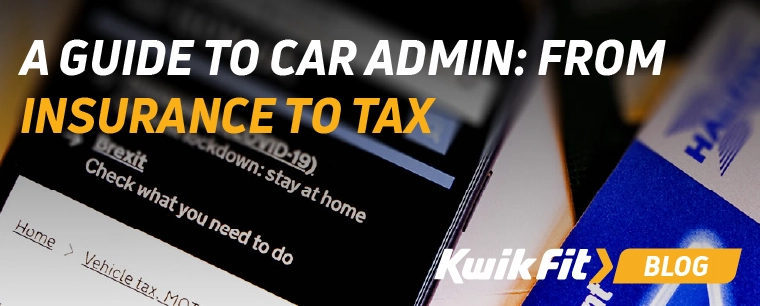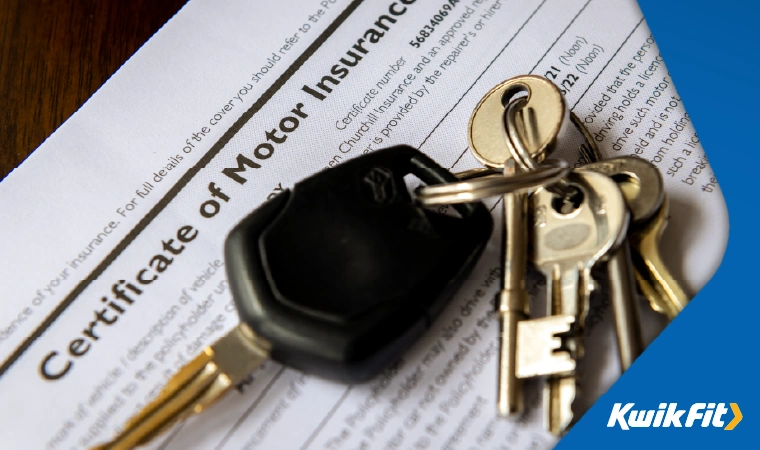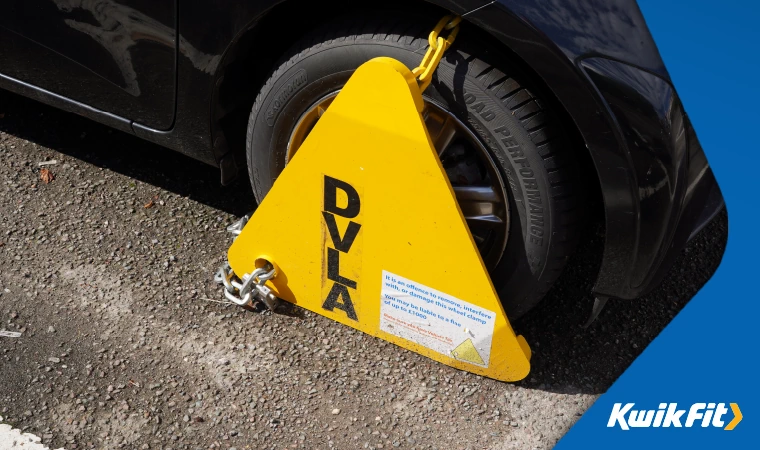A Guide To Car Admin: From Insurance To Tax
Jessica Bird | Sunday 14th September 2025 10:05am

Whether youíve just passed your driving test or recently bought your first car, getting your head around all the admin that comes with that can be fairly overwhelming!
With everything from keeping your V5C document safe to making sure your tax and MOT are always up to date, thereís a lot to keep in mind. But it doesnít have to be confusing.
Letís look at the essential bits of car admin every UK driver needs to know. Read to the end and youíll (hopefully) have a clearer idea of what documents to keep, what deadlines to remember, and how to stay on top of it all.
Why does car admin matter?
Car admin, in a nutshell, is everything that goes on behind the scenes of driving. In other words, itís all the stuff that you need to do in order to actually (in legal terms) drive the car: this means paperwork, renewals, and checks that make sure your car is road-legal, insured, taxed, and safe to drive.
Staying organised with your car admin isnít just a good habit, itís a legal requirement in most cases.
Forgetting to tax your car or missing your MOT could land you with a fine, points on your licence, or even your car being clamped. But donít stress! Itís actually quite straightforward to keep on top of it all when you know whatís needed (and when).
Hereís what admin you need to stay on top of.
1. Your V5C logbook
The V5C, also known as the logbook, is the vehicle registration document. Itís the document issued by the DVLA that confirms that youíre the registered keeper of the vehicle. Itís not proof of ownership (in the sense that you can sell a vehicle for cash but still be in possession of a V5C), but it is essential for any official dealings related to your car.
Youíll need your V5C if you need to:
- Sell or scrap your car.
- Change your address or name.
- Register your vehicle as off the road (SORN).
- Transfer the car to someone else.
As such, itís crucial that you keep your V5C in a safe place. You wonít need it for day-to-day driving, but youíll definitely need it at key moments in your carís life. If youíve lost your V5C, you can apply for a replacement on the gov.uk website.
2. Car tax
Car tax (technically called ďVehicle Excise DutyĒ) is mandatory unless your car is declared off the road (via a Statutory Off Road Notification Ė or SORN). The amount you pay depends on your carís CO2 emissions, age, and fuel type.
You can tax your car for 6 or 12 months, and most people do this online. Learn more about taxing your car on our blog here. In order to tax your car, youíll need your V5C (or V11 reminder letter), a valid MOT certificate, and a debit or credit card.
Forgetting to tax your car could land you an £80 fine (or more) and could result in your vehicle getting clamped. The DVLA does send out reminders, just be sure not to ignore them!

3. Car insurance
By law, you must have at least third-party insurance to drive on UK roads. Your insurance policy protects you (and others) financially if something goes wrong. There are a few different types of car cover you can opt for, which are:
- Third-party only Ė covers damage to other peopleís vehicles or property.
- Third-party, fire and theft Ė adds fire and theft protection.
- Comprehensive Ė covers third-party damage as well as damage to your car.
Itís advised to opt for comprehensive insurance whenever you can afford to do so, as itíll provide the most robust coverage for your car. But opting for third-party insurance should still mean your vehicleís covered if youíre in a no-fault collision (assuming the other driver is insured).
Be sure you keep a digital or printed copy of your insurance certificate, and take note of your policy number and provider, as youíll need these if you ever need to make a claim.
4. MOT certificate
All cars over three years old must have a valid MOT certificate Ė this is a test that goes through a whole range of checks and tweaks to certify that your vehicle meets road safety and environmental standards.
An MOT is due every 12 months, and youíre not legally allowed to drive without one (unless you're going to a pre-booked test).
Note that some fleet vehicles Ė such as taxis and ambulances Ė often require MOT tests within their first three years on the road too.
5. Service history
Although not a legal requirement, keeping a full service history helps to maintain your carís value and reliability. MOT checks are largely focused on safety-essential components such as brakes, suspension, and steering, whereas regular services check things that your MOT doesn't, like engine condition, engine oil, filters, and bearings.
We recommend getting a service at least once a year, or every 12,000 miles Ė whichever comes first.
You can learn more about servicing here, but there are broadly two types of service:
- Interim service Ė basic checks (ideal for high-mileage drivers) every 6 months.
- Full service Ė more comprehensive, annual check which includes engine and safety checks.
It can help to keep your service invoices and any receipts in a folder or to scan and save them digitally so that, when you come to sell, you can prove that the vehicle has been regularly serviced.
6. Statutory Off Road Notification (SORN)
If youíre not using your car and itís parked off-road (like in a garage or driveway), you can declare it as SORN. This means you donít need to tax or insure it Ė but you must not drive it on a road unless itís to a pre-booked MOT.
You can register a SORN online and cancel it at any time by taxing the car again.

7. Breakdown cover (optional, but worth it)
Breakdown cover isnít legally required, but it can save you a lot of stress. If your battery dies, you get a flat tyre, or your car wonít start, a breakdown provider can send help Ė often surprisingly quickly.
Some insurers include it as part of your policy, but you can also buy it separately. Keep a copy of your membership details in your glovebox (or on your phone) Ė and be sure to note your providerís number in case of emergency.
When to update your details
If you move house, change your name (such as when you get married), or change your car, make sure to update all of your documents, like your V5C logbook & driving licence (via the DVLA) and your insurance & breakdown cover (via your providers).
Keeping everything up to date helps avoid delays in getting payment but can also help ensure you never accidentally invalidate your cover.
Some simple tips to stay organised
Keeping on top of everything can be a little overwhelming, so it helps to stay organised. Set calendar reminders for your MOT tests, tax, and insurance renewals Ė it can help to set a reminder for the actual due date, as well as another reminder about a month before the due date. This will help avoid problems if your local MOT centres happen to be booked up in advance.
Alternatively, you can rely on Kwik Fitís free MOT reminder service.
Learn more with Kwik Fit
While itís certainly one of the drier sides of driving, car admin doesnít have to be a chore Ė stay on top of your paperwork and keep organised with important dates, and youíll usually find itís a lot less stressful!
If youíd like more helpful advice on car care and admin, head over to our blog thatís chock-full of useful info. And if you need a service or MOT, the experts at your local Kwik Fit centre are always on hand to help.
Any facts, figures and prices shown in our blog articles are correct at time of publication.
Featured Articles
Is it Illegal to Drive With One Headlight?
Saturday 19th July 2025
Wondering if itís illegal to drive with one headlight? Learn about the safety risks and penalties of illegal blown bulbs and why you should fix them promptly.
Air Con in EVs & Hybrids: Experts Answer Your Questions
Monday 30th June 2025
Does air con drain EV batteries? Can you use the air con while charging an electric car? Find out the answers to these questions & more from Kwik Fitís experts.
Why Is Your Car Making a Noise? Fixes & Tips
Friday 13th June 2025
When your car starts making unexpected noises, it can certainly be quite disconcerting; it may be nothing to worry about, but hereís what you need to know.









